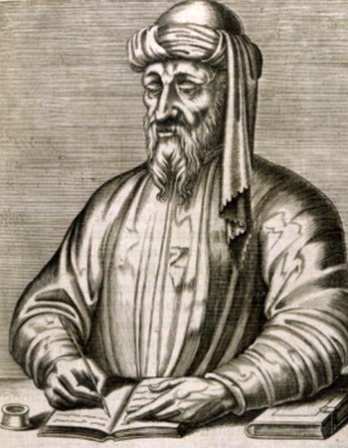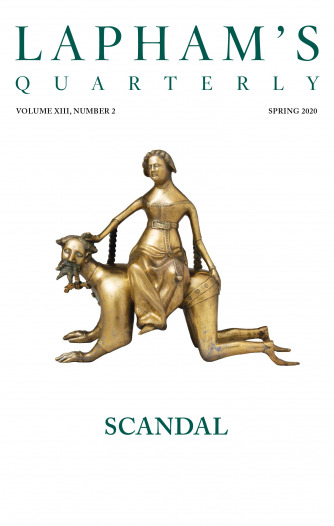As the moment approached, the tension grew almost unbearable: The waiting had been so long. Men suddenly remembered something quite mundane: They were hungry, and the battle was going to start exactly at dinnertime. Some captains had foreseen it and ordered the cooks to have the beef and biscuit ready an hour early; others less wise ordered cheese up from the holds, and a half ration of rum. Officers, whose cabins had been dismantled, ate where they stood or grouped round the rudder head, which they used as a table. Some captains called their junior lieutenants up from the gun decks for a final word—mostly to tell them to hold their fire. Captain Hargood of the Belleisle pointed out the black bulk of the Santa Ana: “Gentlemen, I have only to say that I shall pass close under the stern of that ship. Put in two round shot and then a grape, and give her that.”
And Nelson also felt the tension and the need for a final word. He said to Blackwood, who had been his most constant companion all the morning, “I will now amuse the fleet with a signal. Do you not think there is one yet wanting?” Blackwood said everyone seemed to know exactly what to do. Nelson thought for a moment, and then said, “Suppose we telegraph, ‘Nelson confides that every man will do his duty.’ ” Somebody suggested “England” instead of “Nelson,” and Nelson accepted the change with pleasure. With an air of boyish gaiety, he called the flag lieutenant: “Mr. Pasco, I wish to say to the fleet, ‘England confides that every man will do his duty.’ You must be quick, for I have one more to make, which is for close action.” Pasco asked to be allowed to use “expects” instead of “confides” because “expects” was in Popham’s signal book, but “confides” would have to be spelt. “That will do, Pasco, make it directly,” Nelson said. And at 11:35 the most famous battle signal ever made was hoisted to the yards and mastheads of the Victory.
“England expects that every man will do his duty.” The phrase inspired generations of Englishmen. Yet it was not received with unanimous joy in the fleet. Ships cheered it, but in some of them the cheer itself had a dutiful ring about it. Collingwood, seeing the flags, said, “I wish Nelson would stop signaling. We know well enough what to do”—but when the whole signal was read to him, he approved it cordially enough. In the Euryalus, nobody bothered to repeat it to the crew; and in the Ajax, the officer who was sent to read it out on the gun decks heard sailors muttering, “Do my duty? I’ve always done my duty; haven’t you, Jack?”
Nelson’s first instinct had been right, as it always was in matters of that kind. “England” was too impersonal; “expects” was too mandatory. Nelson’s confidence would have meant much more to the fleet than England’s expectation. “Nelson confides”—they would have cheered that all right; that was what they would have liked to hear. England was far away; England was not the navy, and this was a naval occasion. But Nelson was there, he was with them, one of them: he was their pride.
When the flags were hauled down, his last signal was hoisted: “Engage the enemy more closely.” It flew at the masthead until it was shot away.
David Howarth, from Trafalgar: The Nelson Touch. On October 21, 1805, southwest of Spain’s Cape Trafalgar, the British fleet defeated a force of French and Spanish ships in the decisive naval battle of the Napoleonic War. Admiral Lord Horatio Nelson died of wounds aboard his flagship, HMS Victory.
Back to Issue


